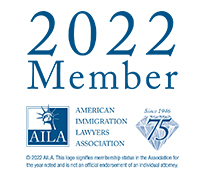Improving Your Life Through Immigration Since 1974
Articles
This page contains articles I have written on immigration-related themes and other articles of interest
Home > Information Bank > Articles
Ukrainian Catholic University Lviv Visit November 2012
by Andy J. Semotiuk
In November of this year, 2012, I spent two weeks leading classes at the Ukrainian Catholic University (UCU) in Lviv, Ukraine. What follows is an account of my impressions from those two weeks.
The Ukrainian Catholic University consists principally of three buildings: a long four-story structure near the center of the city, a student residence near Stryjsky Park again in the city, and a Seminary further away from downtown. UCU has about 600 full time students studying various disciplines, 200 of which are seminarians. The rest are studying Journalism, History Philosophy and Business. It costs UCU about $ 6000 USD to teach each student per year, including tuition, books, food, residence etc.
There are two woman who largely organized my stay: Natalia Pylatyuk who is an assistant to the Rector of the University and Ivanka Mohyliak who was in charge of coordinating the visits of dignitaries. I was assigned a first-class room in the student Colegium where I stayed. I was given a cell phone to be in contact with everyone and Natalia took painstaking care to greet me and make sure I was settled after my arrival at the new modern Lviv airport where the sign finally says “Lviv.” She took me out on my arrival for dinner and to tour around the city so I would be familiar with my surroundings. Ivanka took over the task of coordinating my appearances in the days that followed. My visit was a seamless series of events put together for me by these two wonderful woman as well as the other staff at UCU.
I met a variety of groups.
For one thing, I had four meetings with seminarians in the fourth year of their studies at the university. There were about 40 of them – young men, all dressed in black frocks – eager to learn, full of good will but also somewhat uncertain of what I was presenting to them. I felt a tremendous sense of power in them as they jointly prayed with me at the start of the first class. There is nothing like 40 male voices praying out loud in unison to give you a sense of spiritual purpose. I tried to open with something unique. I therefore started in silence just looking at them for about 30 seconds. They of course were wondering what the heck was going on. Then I launched into the effectiveness of a pause in the course of making a presentation. I think it went well.
In the midst of my remarks, as I talked about my family history in Lviv and the reason why I came to Lviv to spend time with them, I was swept up by an emotional wave that staggered me. I was speechless for about a minute while I tried to compose myself while they watched on respectfully in silence. Finally I managed to get a grip on myself and move on. I think that event conveyed a sense of my sincerity in being there and from then on my presentation went smoothly. They probably wondered just what kind of fruitcake I was on the one hand, but then also probably sensed that the presentation they had just witnessed was somewhat unique and therefore memorable. At least I hope so.
In the following sessions their numbers dwindled somewhat, but those who stayed to the end appeared to me to be the ones who will be most likely the future leaders of the church. Not everything went well – there were moments when I was not connecting with the seminarians and they could not see the value I was trying to convey. At other moments I felt like I was really getting through to them, particularly on the point of making their sermons relevant to the problems parishioners are facing at the moment they are presenting. We held break out sessions and practiced speaking. Some were exceptional speakers, some less so. While occasionally an exercise I proposed did not work well, the good will of those who stayed with me through the course of my four meetings with them made up for any shortcomings that arose because of my shortcomings.
In our last session together following our break out practice sessions we talked about a new vision I proposed for them. I suggested that they become so good in their sermons that word would spread of how well they speak and that people from around Halychyna would look forward to a Sunday when, two or three weeks hence, father so-and-so will be speaking at such and such a church. I suggested to them that they help each other in preparing their sermons and that they work on them to make them interesting using some of the techniques we discussed in class. Again I was deeply moved as the last class was coming to an end; again they watched on quietly in silence as I struggled with my emotions. I wondered what went through their minds as I stood there trying not to be overwhelmed by the emotions I felt. To me what was so striking was that I was now in a independent Ukraine speaking freely to seminarians whose forefathers just 20 years earlier were part of an underground persecuted church under brutal Soviet rule. I was also conscious of how fast time flies and that I was now in my 60s addressing a class of young men mainly in their 20s – that just the other day I was their age and did not appreciate how soon I would be approaching this, the last sprint in my journey. It dawned on me that no matter what I said I could not possibly get them to realize how precious every moment is, and how there is no time to waste and so much they can do to improve the lives of their people in Ukraine today, particularly for the young children growing up under the care of their parents who will soon face an uncertain future unless something is done now.
One of the seminarians rose to his feet and spoke on behalf of his class to thank me for my visit and for my efforts. His words were noble and he spoke so eloquently that I was moved again my his remarks. Then they all stood and sang Mnohaja Lita. As they sang I made a point of looking into their eyes. They were sincere and I knew that they too were touched by the moment.
As for other groups, I met classes of journalists, classes of English students, and classes of people working with NGOs to mention a few. Each showed a keen interest and I was surprised by the extent of their response and the numbers who attended given the last-minute organization of my arrival and trip. Surprisingly for me, even though I proposed various themes I could speak about, such as history, journalism, law and the like, they were all most interested in effective presentation and public speaking skills. I am blown away by this fact since I believe they have a better understanding of the importance of effective communication than do our students in the West. Imagine that! I saw that there were other individuals who were here also addressing these themes, although I want to believe they were not as effective in their approach as I was. I tried my best in each class to highlight the essential elements of a good presentation and to lead the classes in such a way that there was some involvement by the students in presentations. In some cases I may have got carried away with my family history, but on the whole the classes were very forgiving and welcomed my remarks with enthusiasm.
A few things stood out about these students. For one, virtually every one of them knew Ukrainian and Russian and was studying English and another language like French, Polish or German. No kidding!
In this sense they are way ahead of us. For another, their lives are harder than ours – their struggle to survive and prosper is on a steeper incline. Probably in most of their families, money is always a problem, and then there are just life’s challenges: health, government bureaucracy, corruption and the like. In their young lives they have had to face serious problems in their society – separated families with parents abroad, alcoholism, homelessness, hopelessness and even despair – all take their toll. Despite these challenges, or perhaps because of them, most of the students I met have a high level of spiritual commitment and lead a religious life. On top of that I can add with unqualified certainty that Ukraine’s future will be bright to the extent that more students like these graduate from this university.
One afternoon I had the opportunity to meet Myroslaw Marinovych, a Vice Rector at the university and a former dissident who was part of Ukraine’s Helsinki Group in the 1970s. I knew his name well since in the 1970s I was at the United Nations in New York representing the World Congress of Free Ukrainians trying to raise the plight of Ukraine and gain the release from prison of dissidents like Marinovych whose name was on our list of people we tried to help. We spoke of how circumstances had changed and how he felt it was time for a new set of leaders to emerge and take Ukraine further in the direction of democracy and freedom. We spoke of the Declaration of Human Rights and what it meant and discussed modern attempts to add further elements to the human rights already recognized and what that means off those rights in the Declaration that still are very much at risk in various countries worldwide – rights such as gender-related rights and whether they belonged on a par with the others in the Declaration. He considered such attempts to broaden the list in the Declaration as counter-productive and unworthy of inclusion – I was on the fence about the point – although both of us agreed we needed to be considerate and respectful of those who seek protection due to their gender orientation. And of course we spoke about the progress being made at the university in training a new generation of young people free of corruption and versed in the ways of a free and democratic society.
In general the approach UCU is using is very positive. They try to link the students to the professors in formal and informal ways. Their emphasis appears to be in experiential learning as opposed to the traditional face-to-face classroom lecture. There are therefore lunches, coffee breaks and after-hours informal events where students have a chance to speak with people like me and ask pretty much anything. The students are bright, enthusiastic, and disciplined (although they do have a light dose of the “Ukrajinska tochnist” – lateness problem). The facilities are first-rate including residences and meals. In every sense this is a modern university distinguished by its emphasis on quality education, spiritual growth and rejection of corruption and focus on merit. If you are looking for hope for the future of Ukraine you have no reason to look further – you will find it in people who walk in the halls of this university.
Andy J. Semotiuk is an attorney practicing U.S. and Canadian immigration. A former United Nations correspondent stationed in New York, Mr. Semotiuk is a member of Pace Law Firm in Toronto and Manning and Kass in Los Angeles.
The Ukrainian Catholic University consists principally of three buildings: a long four-story structure near the center of the city, a student residence near Stryjsky Park again in the city, and a Seminary further away from downtown. UCU has about 600 full time students studying various disciplines, 200 of which are seminarians. The rest are studying Journalism, History Philosophy and Business. It costs UCU about $ 6000 USD to teach each student per year, including tuition, books, food, residence etc.
There are two woman who largely organized my stay: Natalia Pylatyuk who is an assistant to the Rector of the University and Ivanka Mohyliak who was in charge of coordinating the visits of dignitaries. I was assigned a first-class room in the student Colegium where I stayed. I was given a cell phone to be in contact with everyone and Natalia took painstaking care to greet me and make sure I was settled after my arrival at the new modern Lviv airport where the sign finally says “Lviv.” She took me out on my arrival for dinner and to tour around the city so I would be familiar with my surroundings. Ivanka took over the task of coordinating my appearances in the days that followed. My visit was a seamless series of events put together for me by these two wonderful woman as well as the other staff at UCU.
I met a variety of groups.
For one thing, I had four meetings with seminarians in the fourth year of their studies at the university. There were about 40 of them – young men, all dressed in black frocks – eager to learn, full of good will but also somewhat uncertain of what I was presenting to them. I felt a tremendous sense of power in them as they jointly prayed with me at the start of the first class. There is nothing like 40 male voices praying out loud in unison to give you a sense of spiritual purpose. I tried to open with something unique. I therefore started in silence just looking at them for about 30 seconds. They of course were wondering what the heck was going on. Then I launched into the effectiveness of a pause in the course of making a presentation. I think it went well.
In the midst of my remarks, as I talked about my family history in Lviv and the reason why I came to Lviv to spend time with them, I was swept up by an emotional wave that staggered me. I was speechless for about a minute while I tried to compose myself while they watched on respectfully in silence. Finally I managed to get a grip on myself and move on. I think that event conveyed a sense of my sincerity in being there and from then on my presentation went smoothly. They probably wondered just what kind of fruitcake I was on the one hand, but then also probably sensed that the presentation they had just witnessed was somewhat unique and therefore memorable. At least I hope so.
In the following sessions their numbers dwindled somewhat, but those who stayed to the end appeared to me to be the ones who will be most likely the future leaders of the church. Not everything went well – there were moments when I was not connecting with the seminarians and they could not see the value I was trying to convey. At other moments I felt like I was really getting through to them, particularly on the point of making their sermons relevant to the problems parishioners are facing at the moment they are presenting. We held break out sessions and practiced speaking. Some were exceptional speakers, some less so. While occasionally an exercise I proposed did not work well, the good will of those who stayed with me through the course of my four meetings with them made up for any shortcomings that arose because of my shortcomings.
In our last session together following our break out practice sessions we talked about a new vision I proposed for them. I suggested that they become so good in their sermons that word would spread of how well they speak and that people from around Halychyna would look forward to a Sunday when, two or three weeks hence, father so-and-so will be speaking at such and such a church. I suggested to them that they help each other in preparing their sermons and that they work on them to make them interesting using some of the techniques we discussed in class. Again I was deeply moved as the last class was coming to an end; again they watched on quietly in silence as I struggled with my emotions. I wondered what went through their minds as I stood there trying not to be overwhelmed by the emotions I felt. To me what was so striking was that I was now in a independent Ukraine speaking freely to seminarians whose forefathers just 20 years earlier were part of an underground persecuted church under brutal Soviet rule. I was also conscious of how fast time flies and that I was now in my 60s addressing a class of young men mainly in their 20s – that just the other day I was their age and did not appreciate how soon I would be approaching this, the last sprint in my journey. It dawned on me that no matter what I said I could not possibly get them to realize how precious every moment is, and how there is no time to waste and so much they can do to improve the lives of their people in Ukraine today, particularly for the young children growing up under the care of their parents who will soon face an uncertain future unless something is done now.
One of the seminarians rose to his feet and spoke on behalf of his class to thank me for my visit and for my efforts. His words were noble and he spoke so eloquently that I was moved again my his remarks. Then they all stood and sang Mnohaja Lita. As they sang I made a point of looking into their eyes. They were sincere and I knew that they too were touched by the moment.
As for other groups, I met classes of journalists, classes of English students, and classes of people working with NGOs to mention a few. Each showed a keen interest and I was surprised by the extent of their response and the numbers who attended given the last-minute organization of my arrival and trip. Surprisingly for me, even though I proposed various themes I could speak about, such as history, journalism, law and the like, they were all most interested in effective presentation and public speaking skills. I am blown away by this fact since I believe they have a better understanding of the importance of effective communication than do our students in the West. Imagine that! I saw that there were other individuals who were here also addressing these themes, although I want to believe they were not as effective in their approach as I was. I tried my best in each class to highlight the essential elements of a good presentation and to lead the classes in such a way that there was some involvement by the students in presentations. In some cases I may have got carried away with my family history, but on the whole the classes were very forgiving and welcomed my remarks with enthusiasm.
A few things stood out about these students. For one, virtually every one of them knew Ukrainian and Russian and was studying English and another language like French, Polish or German. No kidding!
In this sense they are way ahead of us. For another, their lives are harder than ours – their struggle to survive and prosper is on a steeper incline. Probably in most of their families, money is always a problem, and then there are just life’s challenges: health, government bureaucracy, corruption and the like. In their young lives they have had to face serious problems in their society – separated families with parents abroad, alcoholism, homelessness, hopelessness and even despair – all take their toll. Despite these challenges, or perhaps because of them, most of the students I met have a high level of spiritual commitment and lead a religious life. On top of that I can add with unqualified certainty that Ukraine’s future will be bright to the extent that more students like these graduate from this university.
One afternoon I had the opportunity to meet Myroslaw Marinovych, a Vice Rector at the university and a former dissident who was part of Ukraine’s Helsinki Group in the 1970s. I knew his name well since in the 1970s I was at the United Nations in New York representing the World Congress of Free Ukrainians trying to raise the plight of Ukraine and gain the release from prison of dissidents like Marinovych whose name was on our list of people we tried to help. We spoke of how circumstances had changed and how he felt it was time for a new set of leaders to emerge and take Ukraine further in the direction of democracy and freedom. We spoke of the Declaration of Human Rights and what it meant and discussed modern attempts to add further elements to the human rights already recognized and what that means off those rights in the Declaration that still are very much at risk in various countries worldwide – rights such as gender-related rights and whether they belonged on a par with the others in the Declaration. He considered such attempts to broaden the list in the Declaration as counter-productive and unworthy of inclusion – I was on the fence about the point – although both of us agreed we needed to be considerate and respectful of those who seek protection due to their gender orientation. And of course we spoke about the progress being made at the university in training a new generation of young people free of corruption and versed in the ways of a free and democratic society.
In general the approach UCU is using is very positive. They try to link the students to the professors in formal and informal ways. Their emphasis appears to be in experiential learning as opposed to the traditional face-to-face classroom lecture. There are therefore lunches, coffee breaks and after-hours informal events where students have a chance to speak with people like me and ask pretty much anything. The students are bright, enthusiastic, and disciplined (although they do have a light dose of the “Ukrajinska tochnist” – lateness problem). The facilities are first-rate including residences and meals. In every sense this is a modern university distinguished by its emphasis on quality education, spiritual growth and rejection of corruption and focus on merit. If you are looking for hope for the future of Ukraine you have no reason to look further – you will find it in people who walk in the halls of this university.
Andy J. Semotiuk is an attorney practicing U.S. and Canadian immigration. A former United Nations correspondent stationed in New York, Mr. Semotiuk is a member of Pace Law Firm in Toronto and Manning and Kass in Los Angeles.






